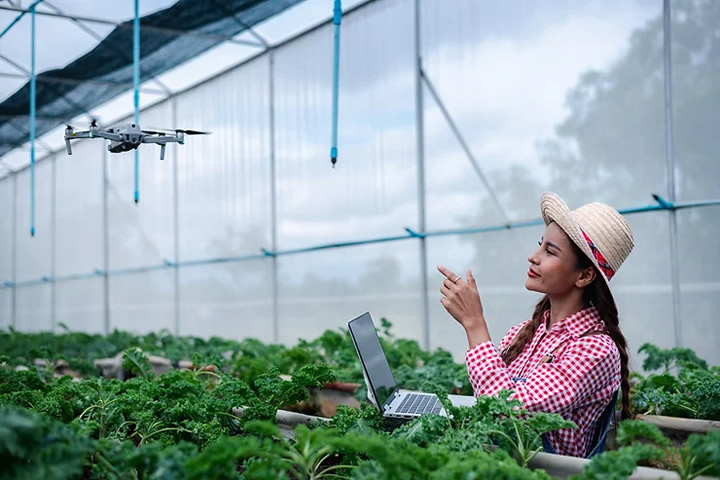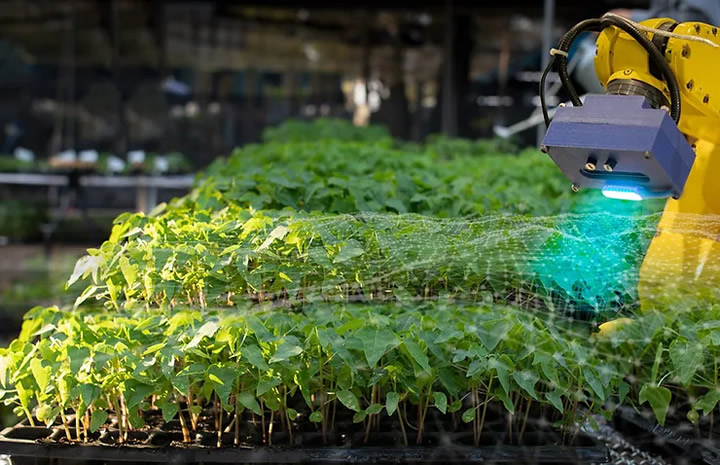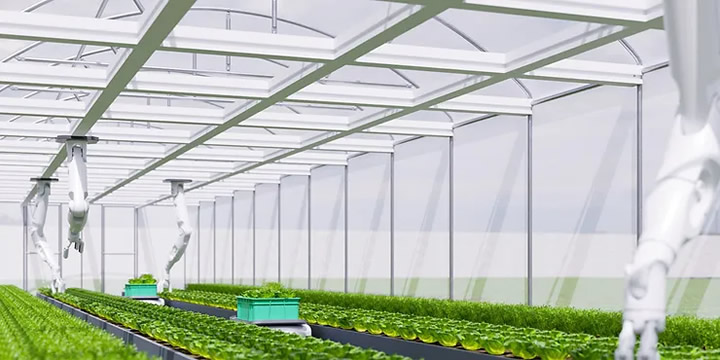In this post, we'll explore what agriculture robots are, common types of agriculture robots, their applications, benefits, the exciting future of robots in agriculture, and more.
Field to Farm: How Robots in Agriculture Revolutionize Farming
Klajd Lika | Bota Systems
The agricultural industry is undoubtedly one of the most crucial industries worldwide because it provides us with an essential basic need — food. By 2050, it's forecasted the world will need to produce 56% more food than it did in 2010 to nourish the ever-growing global population.
As the demand for food steadily continues to rise, farmers are increasingly embracing advanced solutions like agriculture robots to boost food production, reduce waste, and streamline supply. But what are agriculture robots exactly?
In this post, we'll explore what agriculture robots are, common types of agriculture robots, their applications, benefits, the exciting future of robots in agriculture, and more.
Whether you're looking to integrate robots into your agribusiness or simply want to learn about robots in agriculture, read on to learn more.
What Are Agriculture Robots?
Common Types of Agriculture Robots
Planting and Seeding Robots
As the name suggests, these robots excel at planting seeds at precise depths and intervals. They ensure optimal plant growth and minimize seed wastage, making the planting process more efficient and cost-effective.
Weeding and Pest Control Robots
Harvesting Robots
Harvesting crops can be labor-intensive and time-consuming, especially on a large-scale farm. That's where harvesting robots come in handy. These robots are fitted with sophisticated sensors to identify ripe produce and gently harvest it at peak freshness. As a result, they enhance productivity and minimize food waste.

Agricultural Drones
Monitoring large tracts of land can be incredibly challenging. Enter agricultural drones. These robots are equipped with advanced sensors, and they can provide a bird's eye view of your farm, identifying potential problems before they escalate.
Additionally, agricultural drones can efficiently spray fertilizers or pesticides over large areas, saving precious time and resources.
Soil Analysis Robots
Agriculture robots aren't just useful above the surface. They're also helpful beneath it. Soil analysis robots can dig into the soil and capture critical data on soil moisture content, nutrition levels, and potential pathogens.
You can then use the information you obtain from them to make informed decisions about irrigation, fertilization, and pest control strategies, maximizing your crop yield.
Milking Robots
Agriculture robots aren't confined to crop use. Milking robots can gently milk cows while collecting valuable data on their health. You can then use the insights you obtain from them to optimize milk production.
Palletizing Robots
Palletizing robots are designed to automate the stacking of packaged produce onto pallets, preparing it for storage or shipment. They organize packaged produce efficiently, ensuring it occupies minimal space and remains stable during transportation.
And best of all? Palletizing robots are adaptable to various product types and packaging formats, making them essential to modern agricultural operations.
How Are Robots Used in Agriculture?
Soil and Crop Monitoring
Robots with advanced sensors traverse the fields, gathering detailed data on soil moisture, acidity, nutrient levels, and more.
Weed Control
Weeds are a menace. Agribots have sophisticated sensors that can detect and get rid of weeds among your crops, either by mechanical removal or precise application of herbicides.
Fruit and Vegetable Picking
Harvesting robots excel at picking delicate fruits and vegetables susceptible to bruising, like tomatoes, strawberries, raspberries, kiwis, and apples. They can navigate orchards and fields, carefully selecting ripe produce, thanks to their advanced sensors.

Disease and Pest Detection
Agriculture robots can traverse fields and scan plants for pest infestation or signs of disease like blight or fungal disease, allowing you to take action before they spread. Early detection allows for prompt treatment, protecting your crop yield and quality.
Pros of Robots in Agriculture
Data Collection and Analysis
Precision Agriculture
Round-the-Clock Operation
Labor Shortage Solution
Enhanced Sustainability
Precision agriculture, enabled by agribots, reduces reliance on harmful chemicals. Targeted weed and pest control eliminates the need for blanket herbicide and pesticide application, protecting the environment and promoting biodiversity.
Additionally, data-driven insights from robots help tailor irrigation and fertilization, minimizing water wastage.

Future of Robotic Farming
The robotics industry is advancing rapidly, with new developments happening frequently. That said, here's a glimpse into some exciting developments that lie ahead:
Autonomous Farming Systems
Autonomous farming systems are expected to grow in leaps and bounds, with market forecasts expecting the sector to exceed $95 billion by 2027. This augurs well for the future of the agricultural sector as autonomous farming systems will enable robots to perform tasks like planting, harvesting, weeding, and more without human intervention, ensuring peak productivity year-round.
Integration with AI and Big Data
The global artificial intelligence (AI) agrimarket size was valued at nearly $1.37 billion in 2022, and it's forecasted to exceed nearly $11.13 billion by 2032. As the AI and big data industries continue to grow at an unprecedented rate, robots will collect vast amounts of data, analyze it, and take action in sophisticated ways.
Advancements in AI and big data will promote predictive farming, where decisions are made based on forecasted environmental and market trends, promoting optimal outcomes.
Enhanced Personalization
As agribots evolve and become better, they're expected to bring even greater precision to farming, tailoring their actions to the individual needs of each plant.
Enhanced Ecosystem Management
Beyond crop cultivation and livestock management, robots will play an instrumental role in ecosystem management, promoting soil health, water conservation, and biodiversity preservation.
Embrace Robotic Farming Today
Ready to take your farming operations to the next level with automation? Our professional team specializes in the creation of tailor-made solutions, particularly in the realm of force torque sensors for agriculture robots. Contact us today to learn more about the benefits of force torque sensors for your robotic farming equipment.
The content & opinions in this article are the author’s and do not necessarily represent the views of AgriTechTomorrow
Comments (0)
This post does not have any comments. Be the first to leave a comment below.
Featured Product

